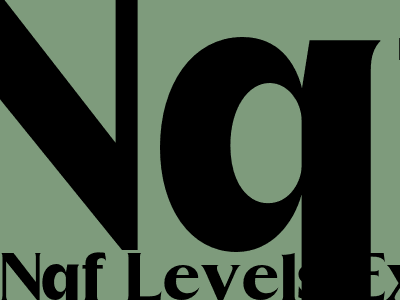NQF Levels Explained: A Comprehensive Guide
Introduction
The National Qualifications Framework (NQF) is a system that classifies qualifications in South Africa according to a set of criteria. It was developed to ensure that qualifications are comparable and recognized across different sectors and institutions. The NQF consists of 10 levels, with each level representing a different level of learning and achievement. The 10 levels will be explained in detail below.Levels 1-4: Entry Level to Further Education and Training
Levels 1-4 are considered the entry level to further education and training. These levels are typically obtained through basic education or vocational training programs.
Level 1: This level is equivalent to the General Education and Training Certificate (GETC), which is awarded after successful completion of Grade 9.
Level 2: This level is equivalent to the National Senior Certificate (NSC), which is awarded after successful completion of Grade 12.
Level 3: This level is equivalent to a National Certificate Vocational (NCV), which is awarded after successful completion of a vocational training program at a Technical and Vocational Education and Training (TVET) college.
Level 4: This level is equivalent to a National Certificate Vocational (NCV), which is awarded after successful completion of a vocational training program at a university of technology.
Levels 5-7: Higher Education and Training
Levels 5-7 are considered the higher education and training levels. These levels are typically obtained through university or college programs.
Level 5: This level is equivalent to a Higher Certificate, which is awarded after successful completion of a one-year program at a university or college.
Level 6: This level is equivalent to a Diploma, which is awarded after successful completion of a two-year program at a university or college.
Level 7: This level is equivalent to a Bachelor's Degree, which is awarded after successful completion of a three-year program at a university.
Levels 8-10: Advanced Higher Education and Training
Levels 8-10 are considered the advanced higher education and training levels. These levels are typically obtained through postgraduate programs.
Level 8: This level is equivalent to a Master's Degree, which is awarded after successful completion of a one-year program at a university.
Level 9: This level is equivalent to a Doctorate, which is awarded after successful completion of a three-year program at a university.
Level 10: This level is the highest level of qualification in the NQF. It is awarded to individuals who have made a significant contribution to their field of study.
Conclusion
The NQF plays an important role in the South African education system. It provides a framework for the recognition and comparison of qualifications across different sectors and institutions. This helps to ensure that learners have access to quality education and training, and that they are able to progress to higher levels of learning.

Comments